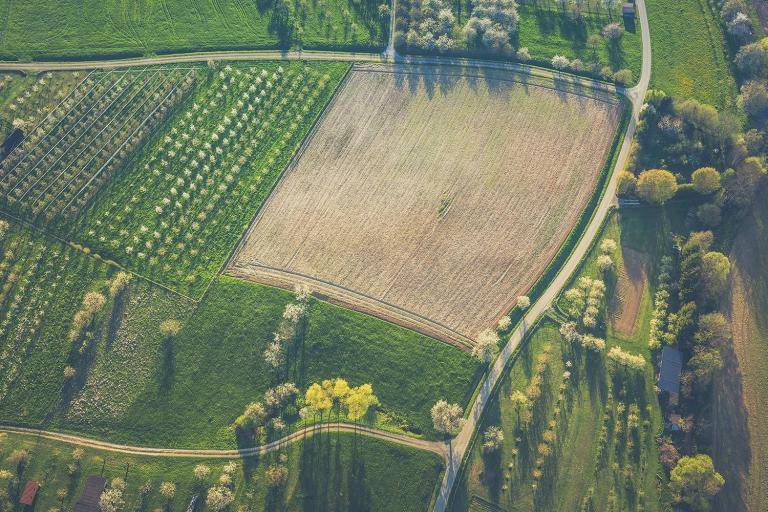ACTIONS.
Trotec wants to expand the types of former foodstuffs used for feed to complex products that are difficult to treat and/or to unpack. Due to their complexity, these products would normally be turned to waste but via the LIFE F3 project, Trotec can keep more food within the food chain. LIFE F3 aims to demonstrate, validate and industrially roll out new technologies in order to achieve this goal.
The project comprises a multidisciplinary approach integrating information on biological, physical and chemical parameters, risk assessment, cost effectiveness. The project structure includes the following actions:
Action B 1 : demonstration of unpacking system
Development of a high throughput unpacking line which is mainly focused on streams of former foodstuffs that are difficult to unpack such as sticky products, frozen products and foodstuff with non-food gadgets.
Action B 2 : demonstration of processing new streams of former foodstuffs
Optimizing the thermal treatment process of challenging former foodstuffs as high density products, sticky products, fruit processing by-products, products with low dry matter and products with pits/seeds.
Action B 3 : new industry 4.0 IT system
By monitoring and weighing the former foodstuffs, data will be collected and shared with food manufacturers to create awareness about the generation of food losses of the company.
Action B 4 : sustainability and project continuation
A strategy will be drafted for maintaining project result after the end of the project.
Action B 5 : replicability and transferability
Results obtained during and after the end of the project will be shared with potential partners and industries. Techniques developed will be evaluated into new practices in new applications.
Action C 1 : environmental impact assessment
To assess the difference in environmental impact between the processing of former foodstuffs into feed versus the current state-of-the-art production of feed from raw materials, Proper monitoring and environmental assessment tools need to be chosen.
Action C 2 : socio-economic assessment
Establish a Socio-Economic Analysis ( SEA ) to assess the socio-economic impact of the project actions on the local economy and population during and after the project.
Action C 3 : monitoring LIFE Key Project level Indicators
Relevant information on key project level indicators will be collected.
This action is closely linked to action C 1 and C 2.
Action D 1 : dissemination and communication towards the general public and stakeholders
These activities are aimed at spreading information concerning project objectives, industrial results and environmental/socio-economic impacts.
The dissemination and awareness raising activities will be conducted to the widest possible audience.
Action D 2 : technical dissemination and communication
Technical dissemination will be aimed at engaging other companies to increase sustainability of their production processes and support circular economy.
Action E 1 : project management
The project management team consist of a project director, project manager, technical managers, quality managers, business developers and administrators. The project management group will closely monitor the project and its progress and follow up the encountered issues.
Action E 2 : After LIFE plan
This action will describe the initiatives to prolong the impact of the LIFE F3 to ensure the sustainability and continuation of the project results.

MAIN ACHIEVEMENTS.
An intensive test program and a detailed study has been done for the unpacking of challenging packed goods.We successfully upgraded our production lines whereby we reached an unpacking capacity on industrial scale. However further test must still be done on specific packaged goods such as frozen food.Also further tests will be executed in function of the availability of received goods.
We successfully used our production pilot line in France testing the thermal treatment of the challenging former foodstuff. Thanks to the test results achieved in the first half of the project, the company is confident to be able to manage the industrial scale demonstration in a controlled way.
By monitoring and weighing the quantity of former foodstuff, interesting data has already been collected and will create awareness at the food manufacturers on waste generation and waste reduction.
Towards public awareness and dissemination results, the company have done a lot of efforts to spread the appearance of the project. The company distributed journals informing the market about our end product, we participated at two exhibitions in France where we received an award for our innovative new product. Articles were published in different international magazines.
Promotional material as banner and notice boards have been used for dissemination of the LIFE projects.
The project management team monitored the project progress and results.
All issues and problems were evaluated directly and correction and additional actions were implemented. The midterm targets are reached.
TIMELINE.
Trotec LIFE timeline.
| 2020 | 2021 | 2022 | 2023 | ||||||||||||||
| B. Implementation actions | I | II | III | IV | I | II | III | IV | I | II | III | IV | I | II | III | IV | |
| B1. Demonstration of unpacking systems | |||||||||||||||||
| B2. Demonstration of processing new food waste streams | |||||||||||||||||
| B3. New Industry 4.0 IT monitoring system | |||||||||||||||||
| B4. Sustainability and project continuation | |||||||||||||||||
| B5. Replicability and transferability | |||||||||||||||||
| C. Monitoring of the impact of the project actions | |||||||||||||||||
| C1. Environmental impact assessment | |||||||||||||||||
| C2. Socio-economic impact assessment | |||||||||||||||||
| C3. Monitoring LIFE key project level indicators | |||||||||||||||||
| D. Public awareness and dissemination of results | |||||||||||||||||
| D1. Dissemination and communication towards the general public | |||||||||||||||||
| D2. Technical dissemination and communication | |||||||||||||||||
| E. Project managment | |||||||||||||||||
| E1. Project management | |||||||||||||||||
| E2. After LIFE plan | |||||||||||||||||
